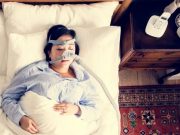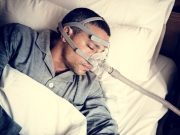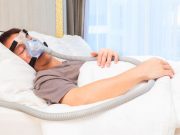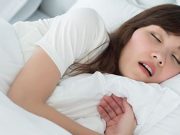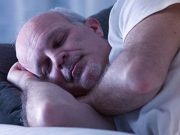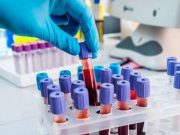Tag: Sleep Problems: Apnea
Sleep Apnea Severity in Black Patients May Be Underestimated Using Standard Tests
Authors say findings show the need to test the accuracy of oximeters across diverse populations
Preexisting OSA Linked to Odds of Postacute Sequelae of SARS-CoV-2
Increased odds ratio observed for probable PASC in association with preexisting obstructive sleep apnea diagnosis
One in Five May Have Obstructive Sleep Apnea
Yet prevalence of treated OSA was only 3.5 percent; male sex, age, previous cardiovascular events, smoking, low exercise linked to OSA
Less Slow-Wave Sleep, Severe OSA Linked to White Matter Abnormalities
Increase seen in white matter hyperintensities, decrease seen in fractional anisotropy of the genu of the corpus callosum
Pharmacologic Therapies Effective for Excessive Daytime Sleepiness
Solriamfetol, armodafinil-modafinil, and pitolisant reduce daytime sleepiness, with solriamfetol likely superior
Study Looks at Cognitive Deficits in Men With Obstructive Sleep Apnea
Authors observed poorer executive functioning, visuospatial memory, and deficits in vigilance sustained attention, psychomotor, impulse control
FDA Says Repaired Sleep Apnea Machines Still Carry Health Risks
Agency warns reworked CPAP, BiPAP machines may deliver inaccurate or insufficient therapy
USPSTF: Evidence Inadequate for Recommending OSA Screening
Evidence is insufficient for assessing balance of benefits and harms of OSA screening in general population
AI Model Can Diagnose Obstructive Sleep Apnea
Machine learning models can use brain imaging data to diagnose obstructive sleep apnea
Changes in Alzheimer Biomarkers Tied to Withdrawal of PAP for OSA
Increase in neurofilament light, decrease in Aβ40 associated with withdrawal of positive airway pressure for obstructive sleep apnea




